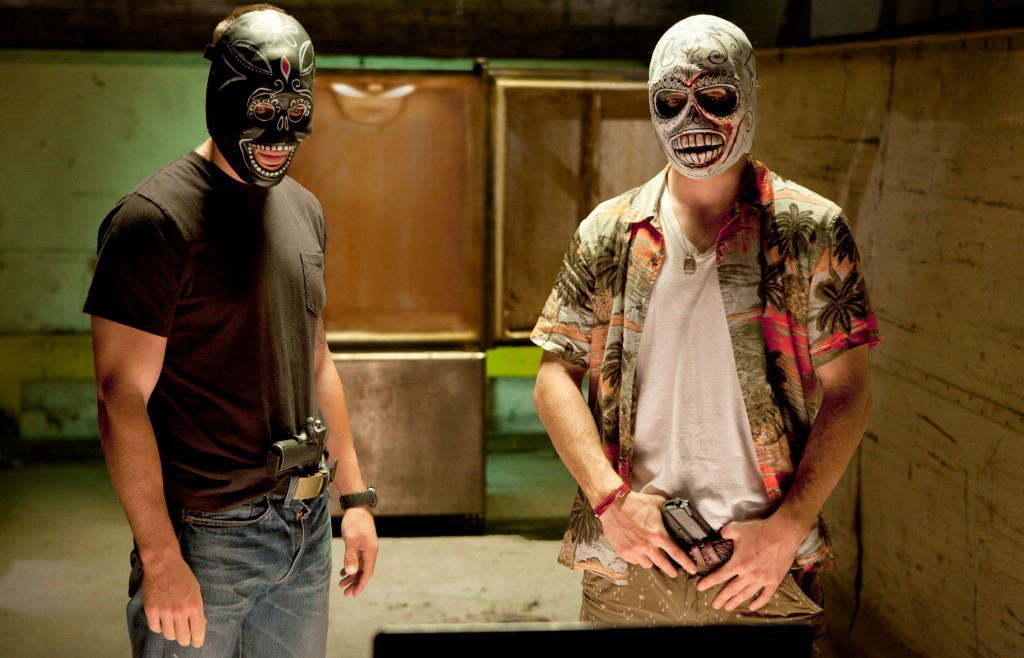Culture
Going from bad to “Savage”

Savages
dir. Oliver Stone
Release Date: Jul 06, 12
- 1
- 2
- 3
- 4
- 5
- 6
- 7
- 8
- 9
- 10
It’s not necessarily rare, especially at the major studio level, to see a movie so overwhelmingly inept on virtually every single level of filmmaking that one wonders how it can exist. The whole refrain of “how did this get made?” is one that gets tossed around frequently, and has reached a point of overuse where it simply feels like a snarky rejoinder that replaces an actual articulated opinion about a bad movie. However, every once in a while, you find a movie like Savages, a movie so overwhelmingly inept on virtually every single level of filmmaking that you really wonder how it could exist, and which group of men in suits with massive amounts of liquid cash told Oliver Stone that he should stop drilling and had hit oil.
Stone, who’s devoted his post-Y2K career to testing how long he can coast on decades-old goodwill with the American public with films like Alexander, W. and Wall Street: Money Never Sleeps, is distinctly returning to the well here, harkening back to the sort of distracting visual tricks and lack of narrative control that made Natural Born Killers a zeitgeist-capturing hit nearly 20 years ago. Where that film, for its problems, at least boasted the exhilaration of new exploration, Savages just feels lazy, a film that wants to say more than it does, carry more weight than it earns and introduces subplots by the gross just so it can Bring It All Together in the third act. Except it doesn’t. The blame isn’t just on Stone, though; the screenplay, which Stone co-wrote with Shane Salerno (Armageddon, the second Alien Vs. Predator) and Don Winslow (who wrote the novel on which the film is based) is one of the most atrocious in years.
But let me back up, as Savages does have a story that it occasionally remembers to follow. Ben (Aaron Johnson) and Chon (Taylor Kitsch, whose 2012 will one day become folk legend) are polar opposites, best friends and the proprietors of Southern California’s most prosperous marijuana grow operation. Fiercely independent, they aren’t particularly amenable to the Baja Cartel’s increasing insistence that they join forces. When they decline the cartel’s final offer, Elena “La Reina” (Salma Hayek) decides to teach them to respect her power, sending her right-hand man Lado (Benicio Del Toro, the film’s lone saving grace) to abduct their shared girlfriend O (Blake Lively). Ben and Chon decide to start pumping their federal informant Dennis (John Travolta) for information about how they can take down the entire cartel, get O back and maintain their blissfully stoned Laguna Beach lifestyle. Also, weed is good. Or bad. Or something.
From its opening moments, the film is woefully bad. Savages begins with 15 minutes of nearly nonstop overhead narration courtesy of O (short for Ophelia), who is not only the worst character in the film to base it around, but blissfully unaware of pretty much everything. Lively isn’t particularly bad given that she’s given next to nothing to work with, but then few actresses currently working could give any conviction to dialogue like “I have orgasms. He has wargasms.” That said, she becomes the face of the sinking ship given that she’s tasked with explaining, in detail, what every single character does, and what’s happening onscreen at any time, just in case you missed it. There’d be no fault there, mind you; the film juggles so many storylines, from Lado’s fixation with the imprisoned O to Ben’s struggles accepting the violence of his profession, that keeping up with the story becomes a race, and not in a positive way.
Speaking of race: Savages might be one of the most offensive films in recent years, on multiple levels. Not only is the title (repeated several times throughout the film) used to describe the Mexican cartel members and the people of the nation at large, but late in the film, it also gets tossed out so that O can compare herself to the “beautiful savages” of Africa. That’s to say nothing of the film’s creepily leering sexism, particularly in the way that Stone shoots Lively in every scene in drooling close-up, or in a series of sex scenes with Kitsch, or with Johnson, or both. For a while Savages makes the point, however muddily, that marijuana has benefits that are outweighed by the violence that surrounds its continued outlaw status. Then, however, for a film that traffics so heavily in sex and gratuitous bloodshed, it gets oddly conservative, going back on that point to talk about how violence really isn’t worth it, and that family is more important than anything else, and other such hackneyed ideas that serve to undercut everything that came before. Stone might have had something to say with Savages, but whatever it was, it wasn’t as important as proving he still knows how to make an exciting film. All he did was prove indisputably that he doesn’t.